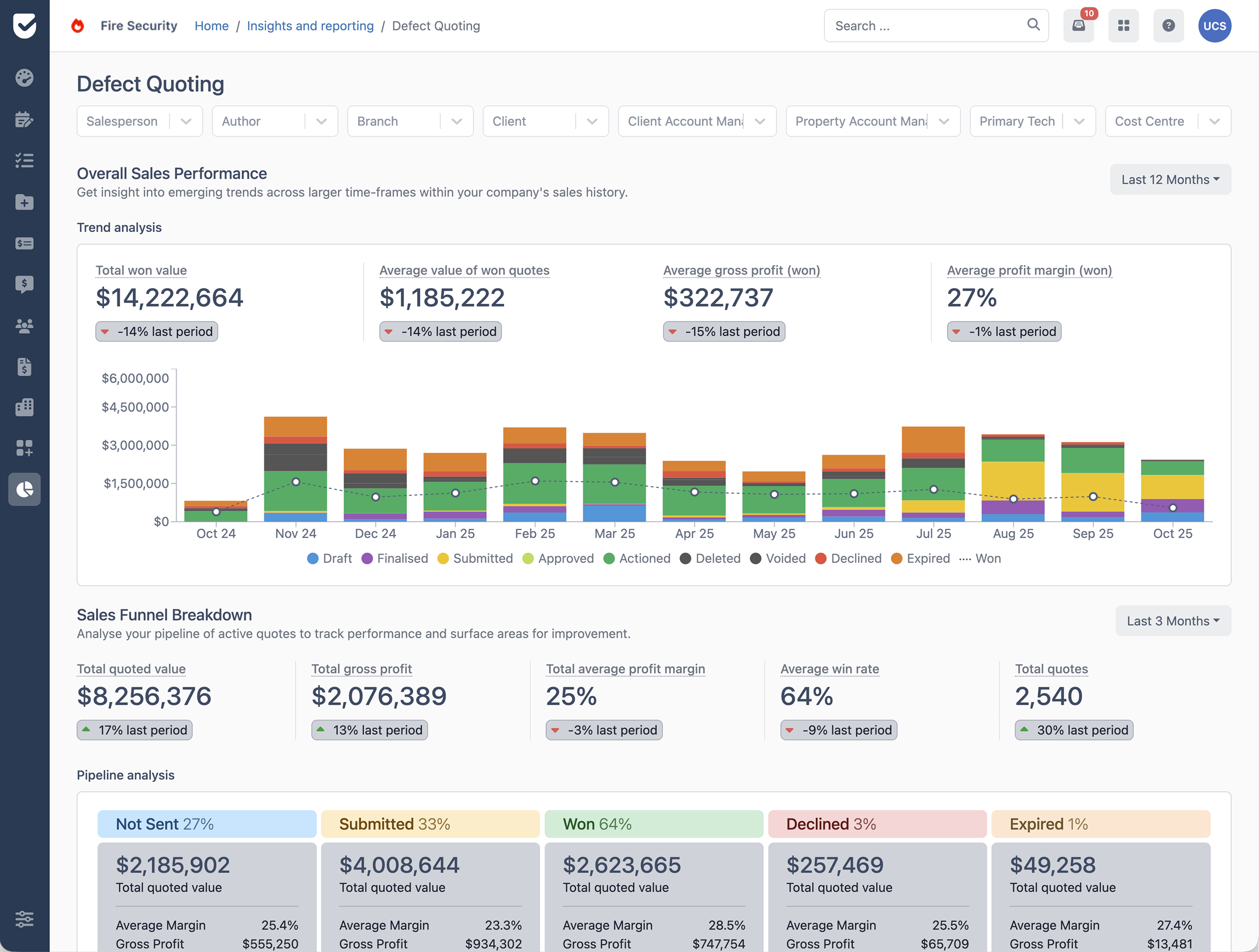How to Future-Proof Your Fire and Security Business With Tech
June 19, 2025
1
min read

Running a fire and security business today is nothing like it was ten or even five years ago. What used to be good enough - handwritten certificates, paper logbooks and carbon copies - isn’t cutting it anymore.
If you’ve not started using technology to help you run your business, you’re going to fall behind. You’ll make it harder for your team to be productive, and you could even miss out on lucrative contracts.
So why else should you start future-proofing your business by making software and other tech part of your day-to-day? Our podcast guests explain how going digital isn’t just better - it’s business-critical.
In episode 3 of The Blueprint, we heard from Peter Martin, UK Business Manager and Jason Patton (formerly Hill), Head of Sales UK & Ireland at Nimbus, who both started on the tools and now lead software adoption in the industry.
At the time of recording, Jason was Head of Sales at Tio Fire Safety.
Customers want proof - not just paper
Jason and Peter remember the fire and security industry before tech. Jason remembers it before people even had smartphones.
“When we did a service visit, we’d write down a list of all the assets with a pen and a bit of paper, and then we’d give that to the office who would then add that onto the system… And we’d get that back the next time round,” says Jason.
“But there would always be mistakes, and sometimes the paperwork would get lost, so you’d spend all day creating an asset register and then you’d give it to the office and they’d lose it!”
After years of slow change, compliance is finally catching up. But Jason says that even today, some companies still aren’t even using spreadsheets.
“That’s really worrying from a couple of standpoints: compliance-wise… But also just trying to find your way around the site - it’s a logistical nightmare.
“A lot of companies aren’t using an asset register whatsoever, and there’s a big risk with that - they’re writing on the certificate ‘100% of assets tested’, but where is the proof?”
While the Grenfell fire undoubtedly played a part in raising awareness, end users also have growing expectations. NHS trusts, housing providers, universities and other organisations want clear evidence that work has been done, not just a signature. Increasingly, it’s being written into invitations to tender.
“We've won a couple of contracts recently where [the customer wants] an asset management system. They want to know what's been tested and where, they want to know how many assets they've got. And that's been driven from the end user,” says Jason.
Peter says it’s only right that end users want access to the data.
“They think ‘Hold on, I’m paying these guys tens of thousands of pounds to service all of my sites up and down the country, actually, it’s not too much to ask, is it?’
“Who was on site, how long were they on site for, what assets did they test… And where’s the proof?”
So if you want to win big contracts, you need to adopt software solutions and demonstrate that you use them to drive compliance to stand out from the competition.
Your asset register could be your biggest sales tool
If you’re still on the fence about using digital asset registers to win new customers, what about keeping your current ones? Kyle Jones, Uptick’s Head of Growth for the UK and Ireland and our podcast host, says that companies should be looking at asset registers as a tool for retention.
“If you hold all that information about a potential end user, it actually should make that relationship easier, but also it should make it harder for them to want to move,” says Kyle.
Peter put it perfectly: “If a customer knows you’ve got every extinguisher, detector and emergency light mapped and managed, why would they move?”
Jason agrees that asset registers can be a huge sales tool, but there’s still some pushback from the industry because of how much time and effort it initially takes to get the register created.
“What they don’t realise is that once they’ve created it, they can then show value for money with that client,” he says.
“[They can show the client] how many assets they’ve got… When they need to be replaced, [what they need to] budget for the future - there’s so much more transparency. It shouldn’t be used as a negative.”
By having all of this information to hand, you can charge effectively for your services and make data-driven decisions. It also means that you can allow your engineers sufficient time to do a proper job, so they’re not tempted to skip testing assets to get through the work on time.
Resisting digital will affect business outcomes
Fire and security businesses are transforming thanks to digital adoption; for example, moving from on-site servers to cloud-based systems and using software to improve compliance.
So, what are the risks to businesses that are still sending engineers to sites with paper job sheets? Jason and Peter say the answer is simple - they’re going to be left behind.
Many companies are now using their digital tools as a differential, and it’s winning them work. They’re not even selling their service and maintenance packages first - they’re leading with digital logbooks and asset registers, then upselling to their maintenance packages.
While it can be easy to feel overwhelmed by the changes in the market, now is the time to start considering what steps you can take to improve your business offering with digital. Peter and Jason say that while you’ve still got some time, now is the chance to lean on digital natives in your company to help you make the transition.
“They’ve still got a bit of time, but not much longer… Technology gets into every industry, and once it gets its claws in, it just carries on going… But it does take some generational changes,” says Peter.
“If you’re coming to the end of your career, you’ve got to listen to those younger engineers,” says Jason.
Allow the innovators in your business free rein to champion digital. They can help make your company more efficient, keep staff engaged and ultimately help you win more customers.
Digital is now the minimum - so you’ve got to get ahead
There was a time when moving to cloud-based servers was innovative and even revolutionary in the fire and security industry. But now it just means you’re keeping up.
The next phase has already begun. There are already early adopters of other tech like integrated systems, connected platforms and AI assistants who are seeing the benefits.
Jason and Peter predict that within the next 10 years, engineers will only install addressable systems that can integrate with other platforms, allowing them to test assets without even getting their smartphones or tablets out of their pockets.
They’ll simply have to test them and the system will do the rest, sending the data to the job management system and into the logbook.
“That’s what drives digital - it’s data,” Peter says.
“Data inherently wants to talk to data, and if you allow it to, then you get fantastic results.”
They also think that AI is unstoppable in the fire and security industry. But there’s no need to be worried about it taking jobs - companies just need to move their staff into more revenue-generating roles.
“I think you do still need the staff. What ends up happening is that things just get more efficient, so you don't actually lose staff, you just have them doing things that are more important,” says Peter.
Adopting digital solutions and AI can only help your staff get a better work-life balance. With cloud-based systems, people can work from anywhere.
“As we become more efficient - and it’s not about losing jobs, it’s about spending more time doing more qualitative things that humans have to do, we’re more efficient and therefore can get a better work-life balance,” says Peter.
It’s clear that there’s no time to waste when it comes to adopting technology in the fire and security industry. If you’re just moving to digital, start small, says Jason.
“Take one step back to take two or three forward,” says Jason.
And Peter says it takes time initially, but it’s worth it in the long run.
“Building those asset lists takes time, but if you do it, then you’ll get good data out. And with that good data, you might be able to retain that service contract for a year or two.”
So start by changing one thing in your business. Utilise digital natives and tech champions in your company who can help drive the transformation. Innovation isn’t necessarily about being flashy, it’s about being smarter and making your business easier to work with. That’s what will win you your next contract.
Avoiding the Race to the Bottom
Competing on price is a race no one wins. Download our free guide, “Avoiding the Race to the Bottom,” to learn how leading fire safety companies are using data, transparency, and tech to stay ahead — without cutting corners. Click the link below.
What is fire inspection software?
Fire inspection software is a digital tool that helps fire protection businesses complete, record, and manage inspections more efficiently. Instead of relying on paper checklists, technicians can use a mobile app to document assets, capture photos, log defects and generate professional reports on the spot.
How does fire inspection software work?
Fire inspection software programs such as Uptick allow technicians to complete inspections on-site using a tablet or phone, capture photos, log defects and generate instant reports. In the office, teams can schedule jobs, send quotes, track maintenance tasks and access real-time visibility across every building and asset. Fire inspection software systems bring your entire workflow together so nothing falls through the cracks.
Who uses fire inspection software?
Mainly fire inspection companies use fire safety software to coordinate inspections and maintain life-safety assets.
How does fire safety inspection software improve compliance?
Uptick ensures technicians follow the correct steps every time, reducing human error and creating consistent records aligned with standards. With asset-based inspections, automated reminders,a full audit history, and in-built compliance reporting, Uptick’s fire safety management software makes compliance easier for you and more transparent for your customers.
Can fire inspection software replace manual checklists?
Absolutely. Digital checklists, mobile inspection forms and automated workflows mean you no longer need printed paperwork. Using fire protection inspection software helps you avoid missing fields, lost forms and manual retyping, saving hours of manual work each week.
Can I customise inspection forms?
Yes. Uptick lets you customise forms to match your local standards, business processes and customer needs. With configurable templates and digital form builders, you can design exactly what your technicians need
How do I choose the best fire inspector software for my business?
Look for a platform built specifically for fire protection. Check ease of use, mobile performance, offline mode, compliance features, integration options and customer support. The best fire inspection software gives you room to grow, not just tools to get by.
How much does fire inspection software cost?
Our pricing model is based on a monthly pay-per-user fee. Customer and sub-contractor licenses are unlimited and free.
What else do you need to know?
How long does it take to get started with Uptick?
The biggest factors determining the length of the onboarding process are:
- The size of your team and their training requirements
- The quality and ease of export of your data
Most companies can get up and running within 2 months.
What platforms and devices does Uptick work on?
Uptick lives in the cloud. That means Uptick is available for your desk/office users on any device (Mac, PC or Linux) via your browser with no additional software downloads.
For your field licenses, on-site staff can use either Apple or Android devices. Our fire safety management app is available in the App store on Apple devices, and the Google Play store on Android devices.
How does Uptick compare to other products?
Uptick is the only modern cloud-based solution that is purposely built for the fire protection industry.
Many alternative solutions are either generic job management platforms that you will need to tailor to your business and/or do not have the same modern cloud-based capabilities.
How does Uptick protect and secure my data?
Uptick takes data security seriously. Our customers include some of the largest companies in the industry. As we work directly with government and banking clients we have have successfully passed through rigorous security auditing and penetration testing.
In addition to being secure, we work hard to provide a reliable service. Customers on Uptick can expect an uptime of 99.95% (including scheduled maintenance). This translates to an average of less than 5 minutes of business-hour downtime per month for office users and no downtime for technicians. If you're a large enterprise and want monetary guarantees around reliability, we offer dedicated hosting and Uptick Support SLAs.
How does Uptick pricing work?
Uptick charges a simple per-user monthly fee for each of your desk and field users. Customer and sub-contractor licenses are unlimited and free.
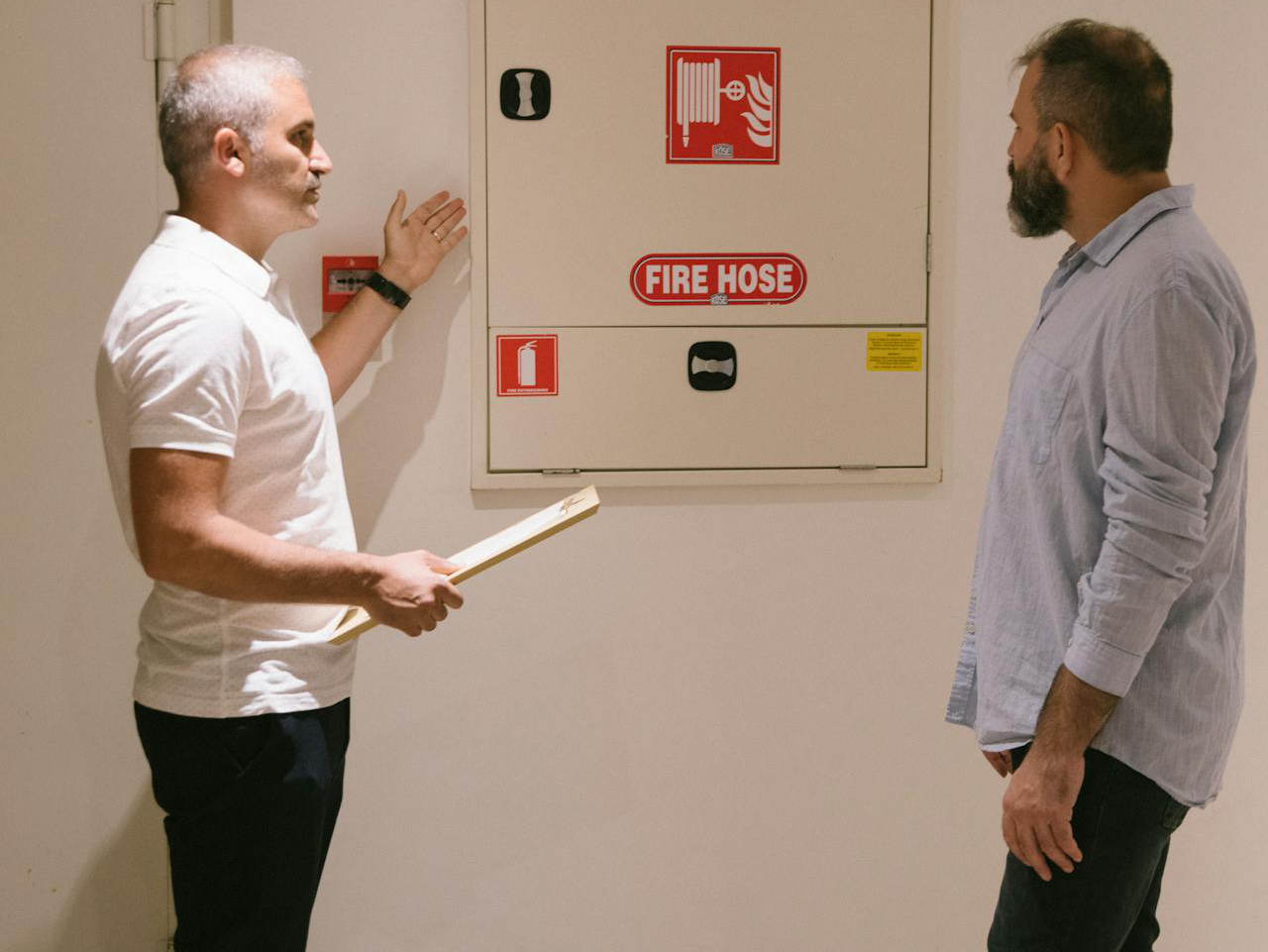
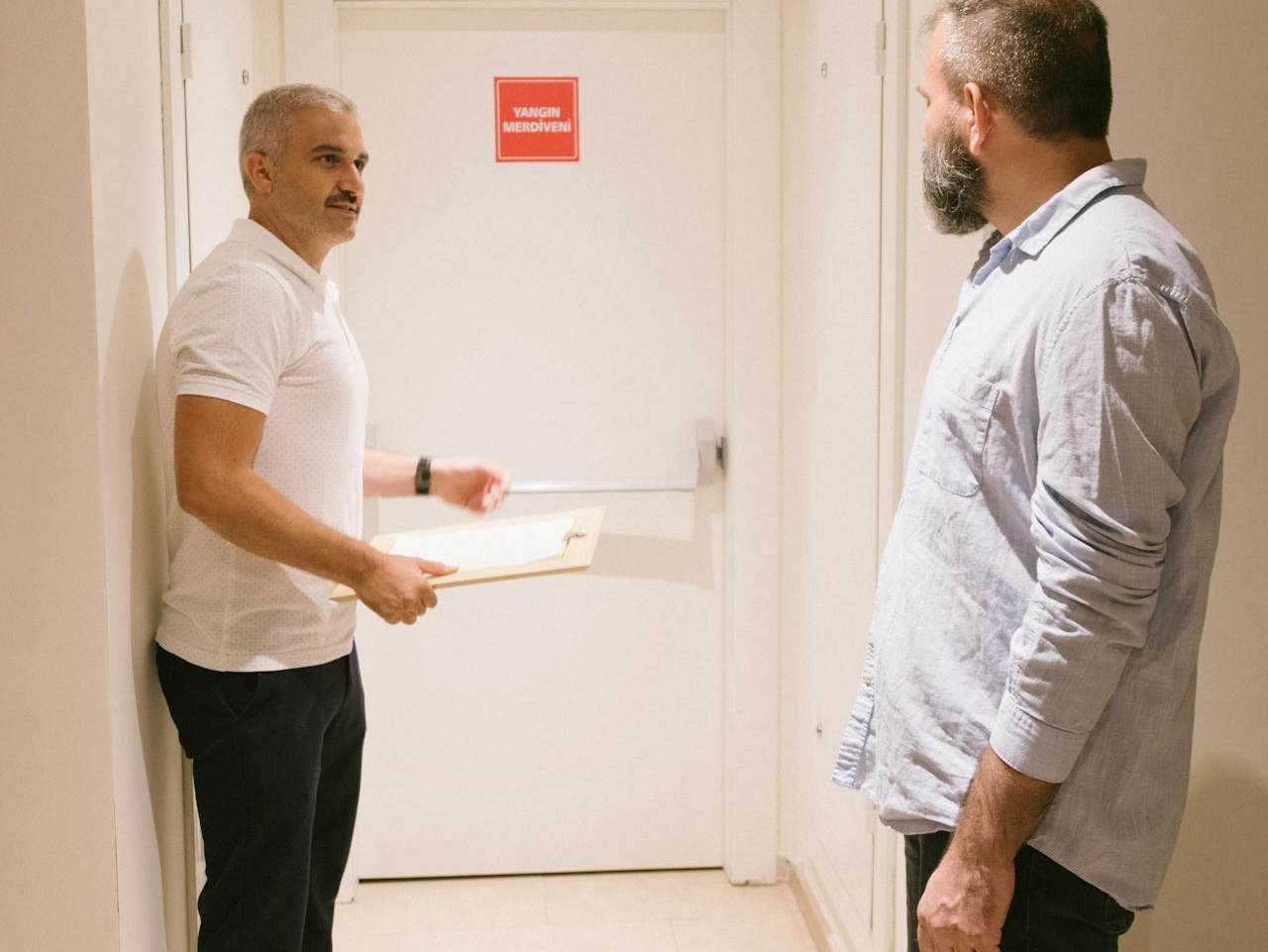
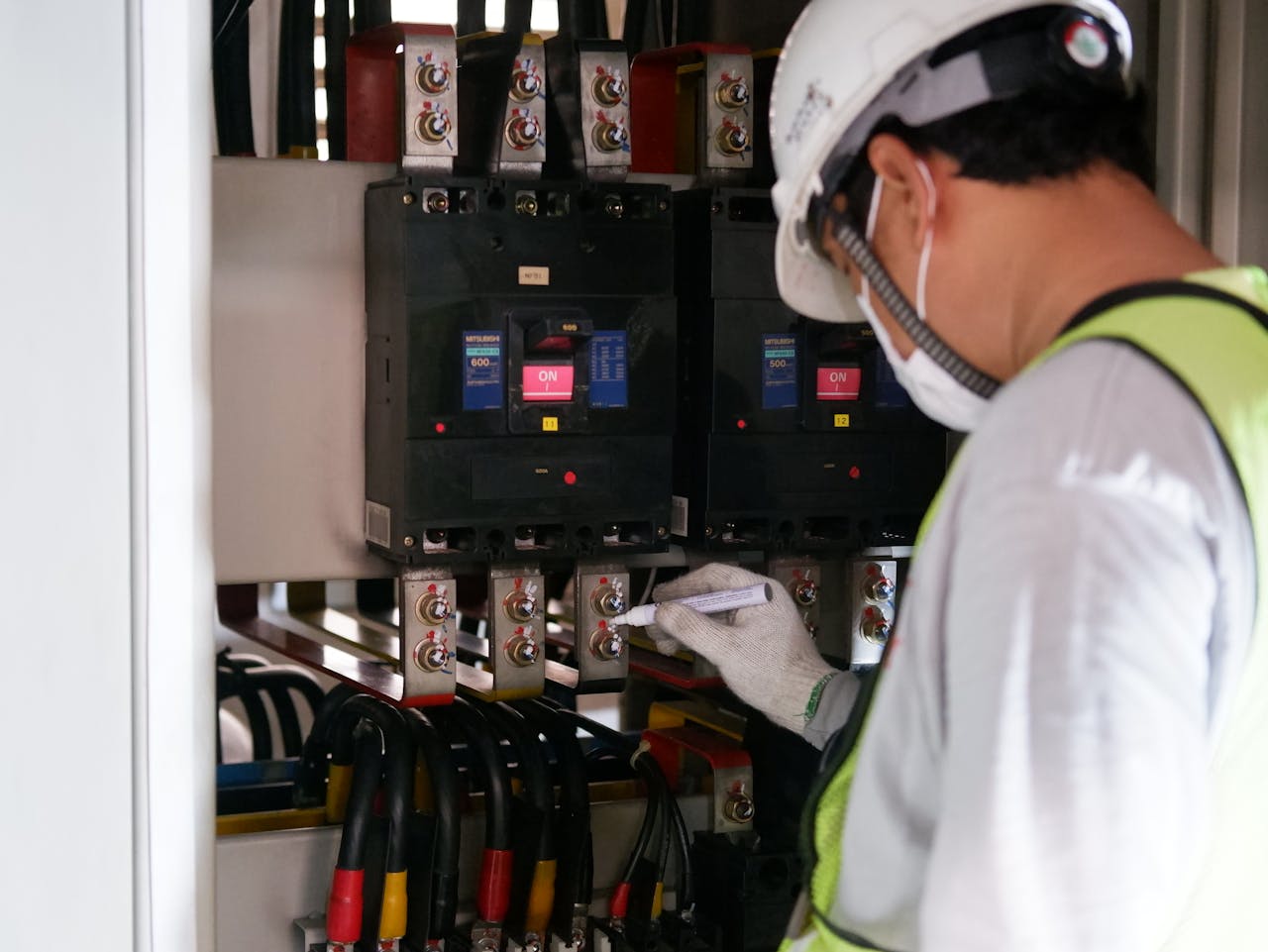
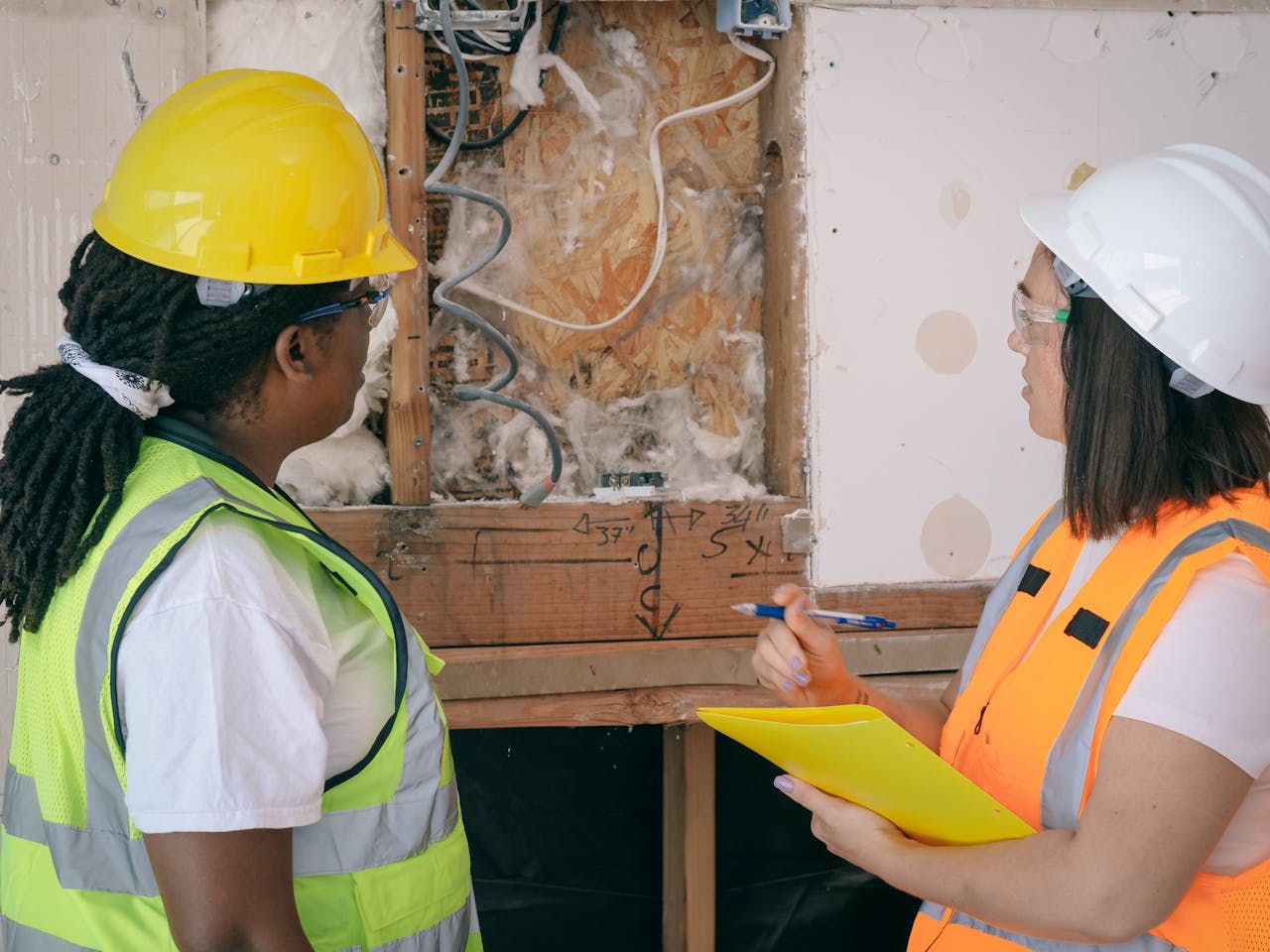







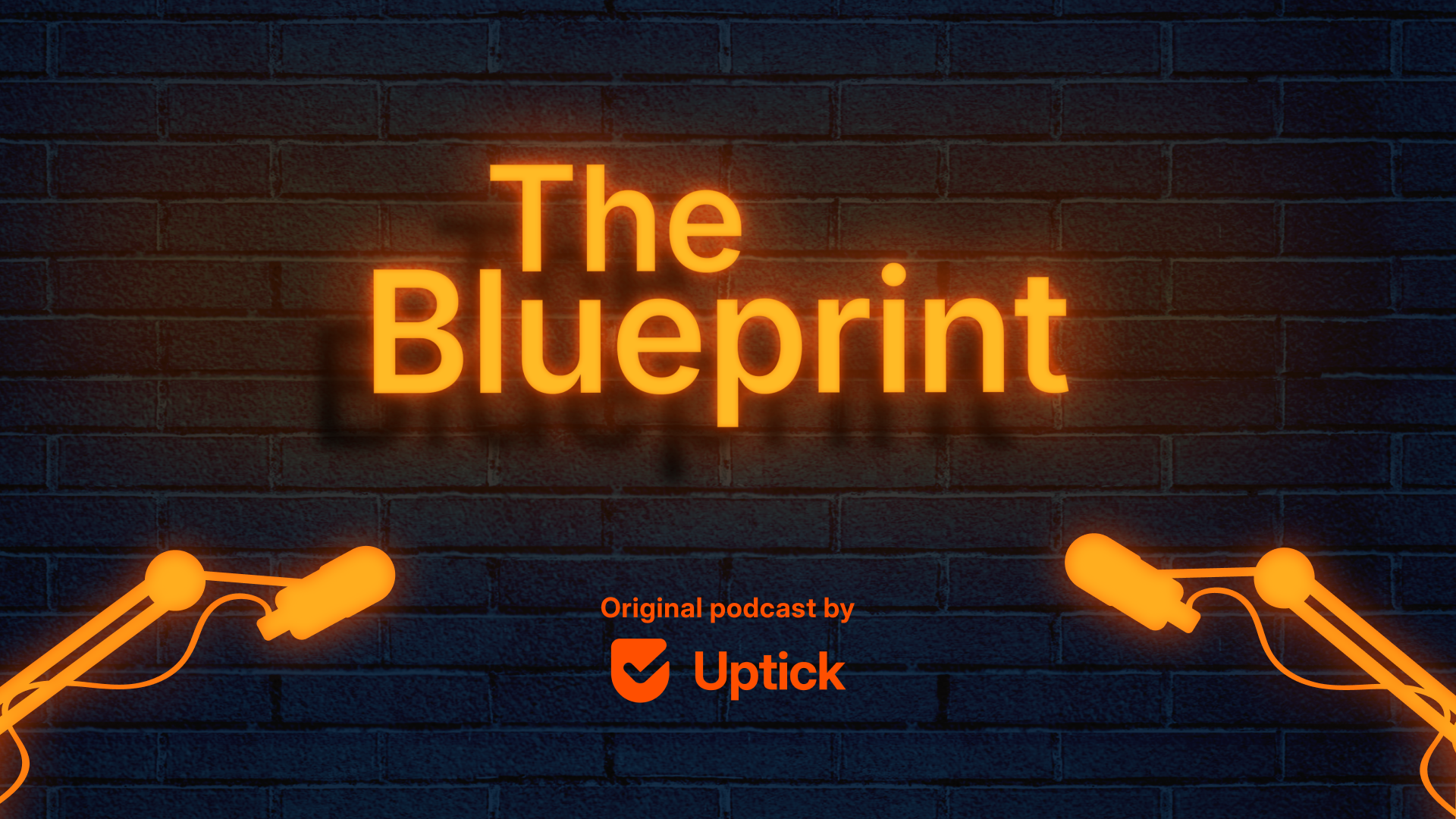






.png)


